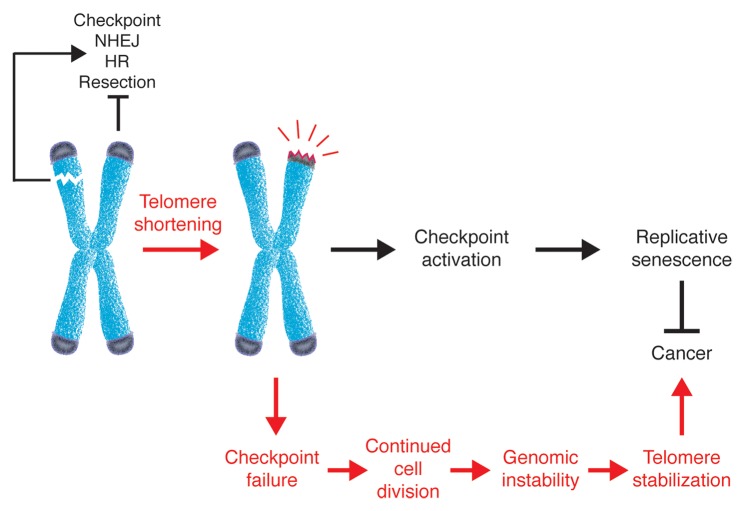Figure 2. Telomere deprotection in carcinogenesis. Although intrachromomal double-strand breaks (DSBs) elicit a checkpoint response and can be repaired, the natural chromosome ends are protected from fusion and degradation and do not activate the checkpoint. This protective function, referred to as capping, is due to proteins that bind the telomeric DNA. Loss of capping due to either deficiences in capping proteins or loss of telomeric DNA induces a DNA damage checkpoint response that leads to cell cycle arrest and senescence, thus providing a potent anticancer mechanism. However, rare failure to activate the checkpoint may allow cells to undergo cell divisions during which uncapped telomeres can be subjected to unscheduled DNA repair events. The resulting genomic instability, coupled with activation of telomere restabilizing mechanisms, can drive the oncogenic process.

An official website of the United States government
Here's how you know
Official websites use .gov
A
.gov website belongs to an official
government organization in the United States.
Secure .gov websites use HTTPS
A lock (
) or https:// means you've safely
connected to the .gov website. Share sensitive
information only on official, secure websites.
